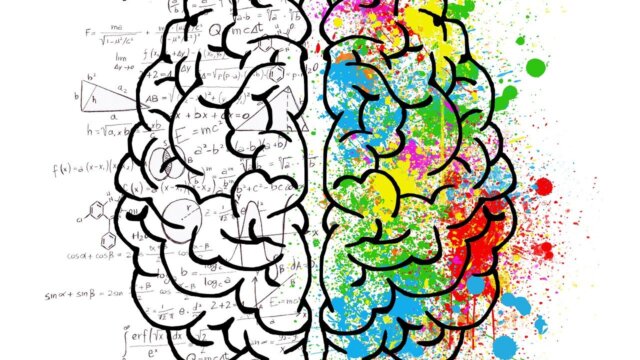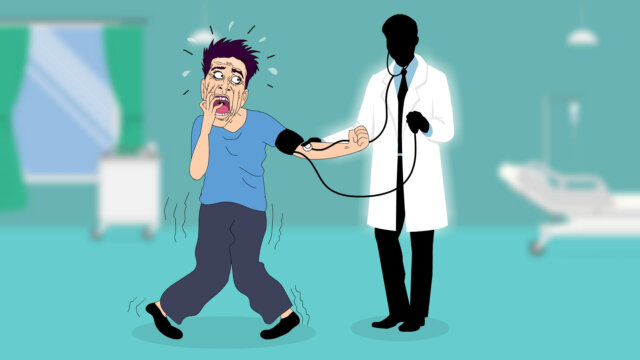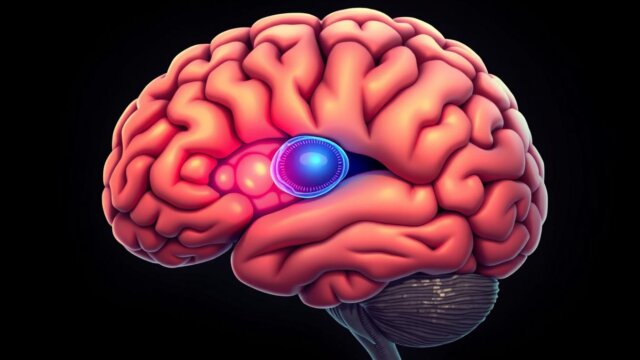FTC disclaimer: This post may contains affiliate links and we will be compensated if you click on a link and make a purchase.
About 0.25 to 0.64 percent of people in the U.S. have schizophrenia. This mental health issue affects how people think, feel, and act. While medicine and therapy are key, some look for natural ways to help. This article looks at home remedies and other therapies that might help people with schizophrenia. It focuses on a whole approach to care.
Key Takeaways
- Schizophrenia is a complex mental health condition that affects a small percentage of the U.S. population.
- While traditional treatments are essential, natural remedies can be used as complementary approaches to manage symptoms.
- Various natural therapies, including vitamin supplements, omega-3 fatty acids, and lifestyle changes, have shown potential benefits in treating schizophrenia.
- A holistic approach that combines natural remedies with conventional treatments may provide the most effective way to support those living with schizophrenia.
- It’s crucial to consult with healthcare professionals before trying any new natural remedies, as they may interact with medications or pose risks.
Introduction to Schizophrenia and Natural Remedies
Schizophrenia is a complex mental disorder that affects how people think, feel, and act. It’s a long-term condition. Traditional treatments like medicines and therapy are key, but some people don’t get better with these methods. This has led to a search for natural remedies to help with symptoms and improve well-being.
Understanding the Need for Complementary Therapies
About 16% of people with schizophrenia use cannabis. Also, 65% to 70% have a vitamin D deficiency. This is much higher than the general population’s 37.6%. These facts show natural supplements and therapies could help people with schizophrenia.
The Importance of a Holistic Approach
Healthcare experts are looking into using a holistic way to treat schizophrenia. They want to add natural remedies, like better diets, supplements, and mind-body practices, to traditional treatments. This can help meet the complex needs of those with schizophrenia.

“Incorporating natural remedies into a comprehensive treatment plan can empower individuals with schizophrenia to take a more active role in their recovery and improve their overall quality of life.”
Understanding schizophrenia better and the benefits of natural therapies helps doctors and patients work together. They can create a treatment plan that covers all aspects of mental health and well-being.
Vitamin B Supplements for Schizophrenia
Using vitamin B supplements is a promising way to help with schizophrenia. High levels of vitamins B6, B8, and B12 might ease symptoms when added to usual treatments. A 2017 study from the University of Manchester showed that B vitamins and standard treatments worked better together. But, it’s key to talk to doctors before taking supplements because they can affect other medicines.
The Potential Benefits of Vitamin B for Symptom Relief
People with schizophrenia often lack essential fatty acids and B vitamins. This lack might play a part in the illness. Taking high doses of B vitamins, like B6, B8, and B12, has helped over 800 people with schizophrenia. Starting B vitamins early seems to help the most.
Research Findings on the Efficacy of Vitamin B
More studies back up using vitamin B supplements for schizophrenia. They show links between vitamin shortages and psychotic symptoms. A mini review also found vitamin D levels and psychosis are connected. Not getting enough nutrients before birth can also raise the risk of schizophrenia later.

More research is needed, but current studies hint that vitamin B supplements could be a natural way to help with schizophrenia symptoms. This approach might lessen the condition’s impact and boost life quality for those affected.
Deep Brain Stimulation: A Non-Pharmacological Treatment
For those with treatment-resistant schizophrenia, deep brain stimulation (DBS) could be a new hope. DBS is a surgery that puts electrodes in the brain to send electrical signals. It tries to help symptoms that don’t get better with medicine.
The DBS process has several steps. First, the surgeon puts the electrodes in while the patient is awake to get it right. Then, another surgery is done to put in a device that sends the electrical signals. This might happen on the same day or the next. The device needs to be programmed several times to work best. Also, the batteries need replacing every few years.
There’s not much research on DBS for schizophrenia, but what we have looks good. If it works, DBS can really help with symptoms. Plus, you can change or stop the treatment if needed, unlike medicine which can take a while to leave your system.
A study showed DBS’s potential for treatment-resistant schizophrenia. A 35-year-old with severe schizophrenia and OCD had no more hallucinations after a year of DBS. This study suggests DBS might be better than many medicines for schizophrenia.
DBS is a surgery with risks and side effects. Anyone thinking about it should talk to doctors to know the good and bad before deciding.

Deep brain stimulation is a promising way to help people with treatment-resistant schizophrenia. Even though there’s not much research, what we know looks good. It could be a new way to help those with hard-to-treat symptoms.
CBD: A Promising Natural Option
Cannabidiol (CBD) could be a good natural treatment for schizophrenia. The FDA has only approved CBD for a rare seizure disorder. But, some doctors are using it off-label for schizophrenia in places where it’s legal. Studies show that CBD might help reduce psychotic symptoms. Yet, too much THC can make things worse for some people. We need more studies to understand how CBD and THC affect schizophrenia.
The Legal Landscape of CBD
The laws on CBD vary a lot from state to state and country to country. In the U.S., the 2018 Farm Bill made it legal to make and sell CBD products with less than 0.3% THC. But, the laws are still changing. It’s key to check your local laws before using CBD products.
Potential Benefits and Limitations of CBD
Studies are looking into how CBD can help with schizophrenia. High doses of CBD might work as well as some medicines in easing psychosis and improving thinking in people with schizophrenia. But, not everyone finds it helpful, and some might feel more sleepy.
Even with its possible benefits, CBD shouldn’t replace regular medical care for schizophrenia. Doctors usually recommend a mix of lifestyle changes, learning, and medicine for treatment.

Research on CBD for schizophrenia is ongoing. People should talk to their doctors before trying CBD for their condition. It’s important to be careful with natural remedies like CBD. Always follow what your doctor says when dealing with a complex condition like schizophrenia.
Omega-3 Fatty Acids: Nutritional Support
Omega-3 fatty acids are found in foods like fatty fish. They could be a natural help for people with schizophrenia. These fats might lessen symptoms of schizophrenia and stop psychosis before it starts. People with schizophrenia might not have enough omega-3s like DHA, which could be a problem.
A 2020 study showed omega-3 supplements help teens with schizophrenia not turn into psychosis. They also got better in positive symptoms and overall function. This matches other studies that say omega-3s and antioxidants can help schizophrenia patients.
The Role of Omega-3s in Cognitive Function and Symptom Severity
Omega-3s could be key for thinking and managing symptoms in schizophrenia. Research looks at omega-3 supplements, especially EPA, for treating schizophrenia and stopping it from coming back. Scientists also study how omega-3s affect the brain and can help with impulsiveness and thinking.
A study with 67 people with schizophrenia found both the fish oil and placebo groups got better. But, there was no big difference between them. Yet, the fish oil group’s omega-3 levels went up after 8 weeks.
Research on omega-3s and schizophrenia is ongoing. These nutrients seem promising for helping with symptoms and brain support. But, we need more studies to know how much and for whom they work best.
Amino Acids: Exploring the Link with Schizophrenia
Research is showing that some amino acids might help manage schizophrenia symptoms. Taurine, a sulfur compound in our bodies, is one amino acid being studied. A 2016 study found that taking 4 grams of taurine daily for 12 weeks helped people with first-time psychosis. It made their symptoms better, including depression and social and work skills.
The Potential of Taurine in Symptom Management
Scientists are looking into how amino acids like taurine affect schizophrenia. They’ve checked amino acid levels in people with schizophrenia. They found that some amino acids might be out of balance, which could affect the condition.
Taurine might be a natural way to treat schizophrenia. It could protect brain cells and help with neurotransmitters in the brain. The 2016 study showed that taurine supplements helped people with first-time psychosis feel better.
We don’t fully understand how taurine helps with schizophrenia yet. But, it looks promising for managing symptoms. More studies are needed to learn more about taurine’s benefits and the right amount to take for schizophrenia.
Amino Acid | Potential Benefits in Schizophrenia |
|---|---|
Taurine | Neuroprotective properties, regulates neurotransmitter systems, potential for improving psychosis, depressive symptoms, and social/occupational functioning |
Glutamate | Imbalance in levels may be related to schizophrenia development and progression |
Glycine | Imbalance in levels may be related to schizophrenia development and progression |
Serine | Imbalance in levels may be related to schizophrenia development and progression |
As research grows, amino acids like taurine could play a big part in managing schizophrenia symptoms.
Home Remedies for Schizophrenia
Medicine and professional help are key for managing schizophrenia. But, home remedies and lifestyle changes help too. They support well-being. These methods help people with schizophrenia deal with symptoms, lessen medicine side effects, and live better.
Lifestyle Modifications and Complementary Practices
Regular exercise, like yoga or running, can ease stress and boost mood. Stress management, through meditation or deep breathing, also helps with schizophrenia symptoms.
Having a daily routine, with set times for sleep, meals, and activities, brings stability. Relaxation techniques, such as muscle relaxation or visualization, help with stress and anxiety.
The Importance of Social Support and Routine
Having a strong social network is key for people with schizophrenia. Being part of support groups and social events helps fight loneliness and builds community.
Communities offer programs for people with schizophrenia, helping with daily tasks, housing, jobs, and crises. Using these services can keep life stable and improve well-being.
By adding these lifestyle changes and practices, people with schizophrenia can better manage their symptoms. It’s important to talk to health experts to safely add these home remedies to treatment plans.
Melatonin: Addressing Sleep Disturbances
Melatonin is a hormone that helps control sleep. It might help people with schizophrenia sleep better. Even though it’s not a key symptom of schizophrenia, many people with the condition struggle with sleep. Studies say melatonin could help with sleep problems in the short term.
A review looked at 15 studies with 626 people. They looked at sleep, metabolism, movement issues, thinking skills, and stopping benzodiazepines. The group had 351 men, 252 women, and 23 others. They had different types of schizophrenia and other mental health issues.
Research also links melatonin to schizophrenia symptoms. High melatonin levels were found in some patients on certain medications. It helps with antioxidants, which might be important for schizophrenia. A study on pineal extracts showed they could affect blood levels of glutathione.
Melatonin can make sleep better in people with chronic schizophrenia. Researchers have looked at melatonin levels in these patients. A study tested melatonin for a movement disorder caused by some antipsychotic drugs.
Studies are still looking into melatonin for schizophrenia. But, they hint that it could help with sleep and other symptoms. Always talk to a doctor before trying melatonin or other natural remedies for schizophrenia.
Combining Natural Remedies with Traditional Treatments
Managing schizophrenia often means using a mix of natural remedies and traditional treatments. Natural remedies can help, but they should not replace what doctors advise.
The Importance of Consultation with Healthcare Professionals
Always talk to your doctor or mental health expert before trying new supplements or therapies. They can explain the risks and benefits of natural remedies. This ensures your treatment is safe and works well.
Potential Interactions and Considerations
Natural remedies can be good, but they might also affect your other medicines or cause side effects. It’s key to watch closely and talk often with your healthcare team. This helps you get the most from your treatment plan.
“Approximately one-third of individuals diagnosed with schizophrenia are treatment-resistant, making the exploration of complementary therapies even more crucial.”
Working with your healthcare team helps create a plan that uses both traditional and natural treatments. This can greatly improve how well you manage your schizophrenia.
- A 2017 study from the University of Manchester found that high doses of vitamins B6, B8, and B12, when combined with traditional treatment, significantly reduced schizophrenia symptoms.
- A 2020 study by researchers at Seoul Women’s University found that anti-inflammatory agents in the diet could improve symptom severity and reduce risks triggering episodes for schizophrenia.
- Omega-3 fatty acid supplements were shown to reduce the conversion rate to psychosis in adolescents with schizophrenia in a 2020 study from I-Shou University in Taiwan.
- Melatonin may be effective in treating sleep problems in people with schizophrenia, some studies suggest.
By working with your healthcare team and thinking about the risks of natural remedies, you can make a full treatment plan. This plan will meet your specific needs for managing schizophrenia.
Potential Benefits and Risks of Natural Remedies
Natural remedies may help manage schizophrenia, but we must look at the evidence closely. Studies suggest omega-3 supplements, 750 to 2,000 milligrams of EPA daily, can ease schizophrenia symptoms. Vitamin B supplements might also cut down on symptoms in some people with schizophrenia.
Evaluating the Evidence and Monitoring Progress
There’s not much research on natural treatments for schizophrenia, and results can differ. In Canada, 88% of psychotic outpatients use CAM, and 68% do in a year. Research found 110 studies showing natural medicines like glycine and ginkgo biloba help with symptoms.
People should talk to their doctors about natural and traditional treatments. It’s important to watch for side effects and adjust treatments as needed. Natural remedies can have risks like side effects, unclear results, and bad reactions with other medicines.
Natural Remedy | Potential Benefits | Risks and Considerations |
|---|---|---|
Omega-3 Fatty Acids | May lessen the severity of schizophrenia symptoms and prevent psychosis in at-risk teens. | Potential side effects include digestive issues, fishy aftertaste, and increased risk of bleeding. |
Vitamin B Supplements | May help reduce psychiatric symptoms in some individuals with schizophrenia. | High doses can cause side effects like nausea, vomiting, and nerve damage. |
Ginkgo Biloba | May reduce tardive dyskinesia and akathisia when used with antipsychotics. | Can interact with blood-thinning medications and cause headaches, digestive issues, or allergic reactions. |
People with psychotic disorders often look for other treatments to lessen side effects or speed up recovery. They want to make treatment choices that fit their needs and values.
“Patients with psychotic disorders often seek nonconventional medicines or treatments in the hope of reducing adverse effects or improving recovery.”
Adding natural remedies to treatment plans requires working with doctors and watching how things go. It’s key to know the risks and how they might interact with other treatments. By looking at the evidence and focusing on what each person needs, people with schizophrenia can try natural options safely and effectively.
Dietary Modifications and Anti-Inflammatory Foods
Making changes to your diet can help manage schizophrenia symptoms. Eating more fruits, vegetables, and whole grains can help. Cutting down on dairy, red meat, and animal fats is also good. These changes can make symptoms better.
Good nutrition can support brain health and thinking in people with schizophrenia. It helps fight inflammation and gives the brain what it needs.
The Role of Nutrition in Symptom Management
People with schizophrenia might not get enough fiber, which is bad for health. Eating fish like salmon and mackerel can help with symptoms. Foods like chicken and marinara sauce have niacin, which can slow down schizophrenia’s effects.
Zinc is important, and foods like oysters and beef have lots of it. Vitamin B12 is often low in those with psychosis, but eating more of it can help. Folate in spinach and beef liver can also make symptoms better.
Vitamin D from the sun or foods like salmon can help some people with schizophrenia. Prebiotics and probiotics in foods like yogurt can be good for the gut. Some might need a gluten-free diet if they’re sensitive to wheat. A diet low in sugar can also help with symptoms.
Eating anti-inflammatory foods and fixing nutritional gaps can help manage schizophrenia symptoms naturally.
Mind-Body Practices for Schizophrenia
Beyond supplements and diet changes, mind-body practices help people with schizophrenia. Techniques like mindfulness meditation, yoga, and stress management strategies help with anxiety and depression. They can also help those with schizophrenia. These practices improve emotional control, resilience, and well-being. They can be a big help in a treatment plan.
Mindfulness, Yoga, and Stress Management Techniques
Mindfulness helps people with schizophrenia know themselves better, control their feelings, and handle tough thoughts and feelings. Yoga is good too, mixing movement, breathing, and meditation. It helps with relaxation, sleep, and stress. Stress management methods like muscle relaxation and guided imagery also help manage schizophrenia symptoms.
Adding these practices to treatment plans helps people with schizophrenia cope better. It improves their well-being and gives them more control over symptoms. But, it’s important to work with doctors to use these therapies safely and effectively.
“Connecting face-to-face with others is the most effective way to calm the nervous system and relieve stress. Stress management is crucial, as it can trigger psychosis and exacerbate symptoms of schizophrenia.”
Mind-Body Practice | Potential Benefits for Schizophrenia |
|---|---|
Mindfulness Meditation | Improved emotional regulation, reduced anxiety and depression, enhanced self-awareness |
Yoga | Increased relaxation, better sleep, stress reduction, improved physical and mental well-being |
Stress Management Techniques | Decreased physiological and psychological stress, better coping mechanisms, enhanced overall quality of life |
By adding mind-body practices to their treatment, people with schizophrenia can aim for a more whole and personal way to handle their condition. This can improve their overall well-being.
Conclusion
Traditional treatments for schizophrenia are still key, but natural remedies and therapies can also help. People with schizophrenia can try vitamin B supplements, omega-3 fatty acids, and mind-body practices. Always talk to a healthcare provider before trying these options.
Using both clinical and natural treatments can make a big difference. It can help people with schizophrenia feel better and live better lives.
Natural support for schizophrenia includes vitamin B, omega-3 fatty acids, CBD, and mind-body practices. A balanced diet, supplements, and good sleep are also important. More research is needed, but these natural supports show promise for those looking to improve their treatment plans.
When trying natural remedies, work closely with healthcare professionals. This ensures they are safe and work well with other treatments. By using both traditional and natural therapies, people with schizophrenia can improve their health and life quality.
FAQ
What are some natural remedies and home treatments for managing schizophrenia symptoms?
Natural remedies for schizophrenia include vitamin B supplements, deep brain stimulation, and CBD. Omega-3 fatty acids, amino acids like taurine, melatonin, and dietary changes are also helpful. Mind-body practices such as mindfulness and yoga can aid too.
How can vitamin B supplements help with schizophrenia?
Studies show that vitamins B6, B8, and B12 can ease schizophrenia symptoms with traditional treatments. These vitamins boost cognitive function and overall health.
What is deep brain stimulation, and how can it be used for schizophrenia?
Deep brain stimulation (DBS) is a surgery that implants electrodes in the brain for electrical stimulation. It can help with symptoms that don’t respond to usual treatments.
Can CBD be used to manage schizophrenia symptoms?
Research links high-CBD cannabis with fewer psychotic symptoms. This hints at CBD’s possible antipsychotic effects. Yet, more studies are needed to fully grasp CBD’s role in THC and schizophrenia.
How can omega-3 fatty acids and amino acids like taurine help with schizophrenia?
Omega-3 fatty acids in foods like salmon may lessen schizophrenia symptoms. Amino acids, such as taurine, are also being studied as natural schizophrenia treatments.
How can melatonin be beneficial for individuals with schizophrenia?
Melatonin, a hormone that controls sleep, could help with sleep issues in schizophrenia. It shows promise as a treatment for sleep problems linked to the condition.
What other home remedies and lifestyle modifications can help manage schizophrenia symptoms?
For schizophrenia, regular exercise and stress-reducing activities like mindfulness can help. Keeping a daily routine and having strong social support are also key.
How should natural remedies be combined with traditional treatments for schizophrenia?
Natural remedies shouldn’t replace standard treatments for schizophrenia. Combining clinical and natural methods under a healthcare team’s advice works best. Always talk to your healthcare team before trying new supplements or therapies.








